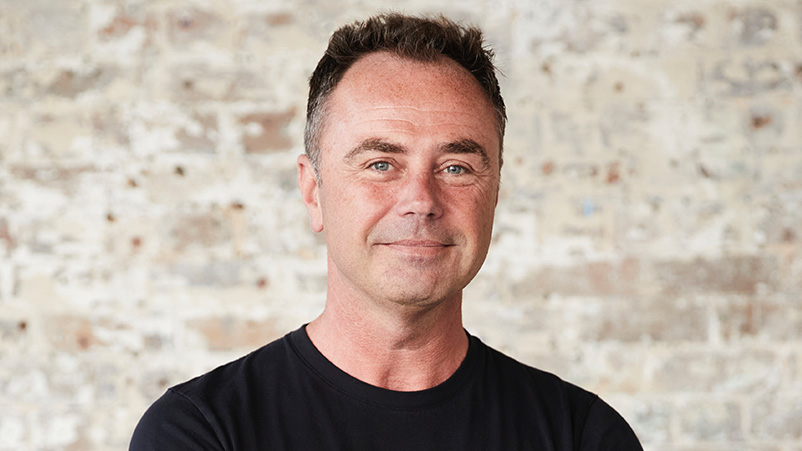Remote working and Zoom drinks will destroy young talent’s best, formative years

Working from home is all too seductive for younger employees, but Covid taught Matt Rowley leaders need to plan longer term. He says the connections made early in our careers are fantastically formative, and a diet of virtual office culture will never be enough for developing talent.
Doing what’s easy is usually different from doing what’s right; the short term convenience trade-off that working largely from home represents has a heavy long-term price to pay for businesses, but an even higher cost for younger employees.
What have you learned from Covid?
I’m genuinely interested because, while we all collectively experienced the exact same event, I’ve found people are taking very different lessons from it.
The one I see people refer to most is how 'productive' we proved working from home is. If by productive you mean 'efficient', I agree. You can pack more stuff into a day when you don’t have to commute or move between meetings. Rack up those Zoom calls! You can therefore also fit more non-work stuff in – walking the dog, a doctor's appointment, a quick surf, popping to the shops.
If by productive you mean ‘effective’, I disagree. Working in a business where creativity, ideas and connections between people matter – virtual meetings will never deliver the same level of results. The disgust we all feel at the suggestion of one more Zoom drinks is all the proof you need of virtual limitations.
If you run a business with young people in it (pretty likely in media) then there’s another reason you need to lead this charge – you owe it to them.
Working from home is short-term seduction
I believe we’ll see a split of businesses as we move to a post-Covid world. There will be those who quickly disavowed work premises and are late to lead people back to reality. They will be ceding competitive advantage to another group who have the learned the lessons of productivity, but wrap them into a renewed vigour for the magic that human contact brings. Which will yours be in?
If you run a business with young people in it (pretty likely in media) then there’s another reason you need to lead this charge – you owe it to them.
Yes, working from home is easier and seductive if you’re young. Get up later, wear what you want, spend less on travel and food and more on your passions. Fit work around you.
However, the first ten to 15 years of any career are intensely formative. It’s where you make the networks and friends that will sustain you in later days, especially in a relatively small and remote (I prefer ‘perfectly formed’) market like Australia. It’s where you learn the lessons of your craft and leadership by experiencing first hand the micro skills the more experienced display, and/or seeing what not to ever do again.
You can’t get this through Zoom or an online course.
But how is someone in their twenties supposed to know that? It’s only in retrospect that you realise how important this period of your career is. Additionally, there’s a creeping loneliness epidemic setting in which we are starting to see through data from the Australian Institute of Health and Welfare; calls to Beyond Blue are up 38% year on year.
Remote working erodes culture
Doing what’s easy is usually different from doing what’s right; the short term convenience trade-off that working largely from home represents has a heavy long term price to pay for businesses, but an even higher cost for younger employees.
Of course, there is an exception to my proposed rule. If your business had either little or poor culture before Covid hit then it’s quite possible your people are doing better out of it and understandably would rather avoid it IRL (in real life). If that’s the case – you’ve got bigger problems than balancing days in the office versus the days at home.
If you had a good culture going into Covid, it was probably a major factor to your success through it. Even with best practices in place, running virtually at best coasts on, and more likely slowly erodes, that culture’s strength. No doubt you’ve had new joiners since Covid began – if the vast majority of their experience has been virtual it’s a big challenge to see how they can be continuing to weave your special culture. In reality, despite best intentions they are probably diluting it.
They say culture will eat strategy for breakfast – and a strictly virtual diet ain’t gonna fill that beast.
Getting practical:
- If you haven’t already, get serious about your culture. Defining it, growing it, rewarding it both virtually and especially IRL now that we can.
- To win people back to IRL, lead by example and create natural FOMO (fear of missing out); be unapologetic that some great things can only be enjoyed by those present.
- It’s not one size fits all when it comes to a balance of IRL vs virtual across roles – set the balance depending on the need.
- Get realistic on the logistics – no one wants to come into the office to then sit in endless video conferences with colleagues at home; get functions and teams that need to work together altogether on the same days. Be prepared that this will mean the office gradually back to near capacity at certain periods in the week (a good thing for buzz!).

